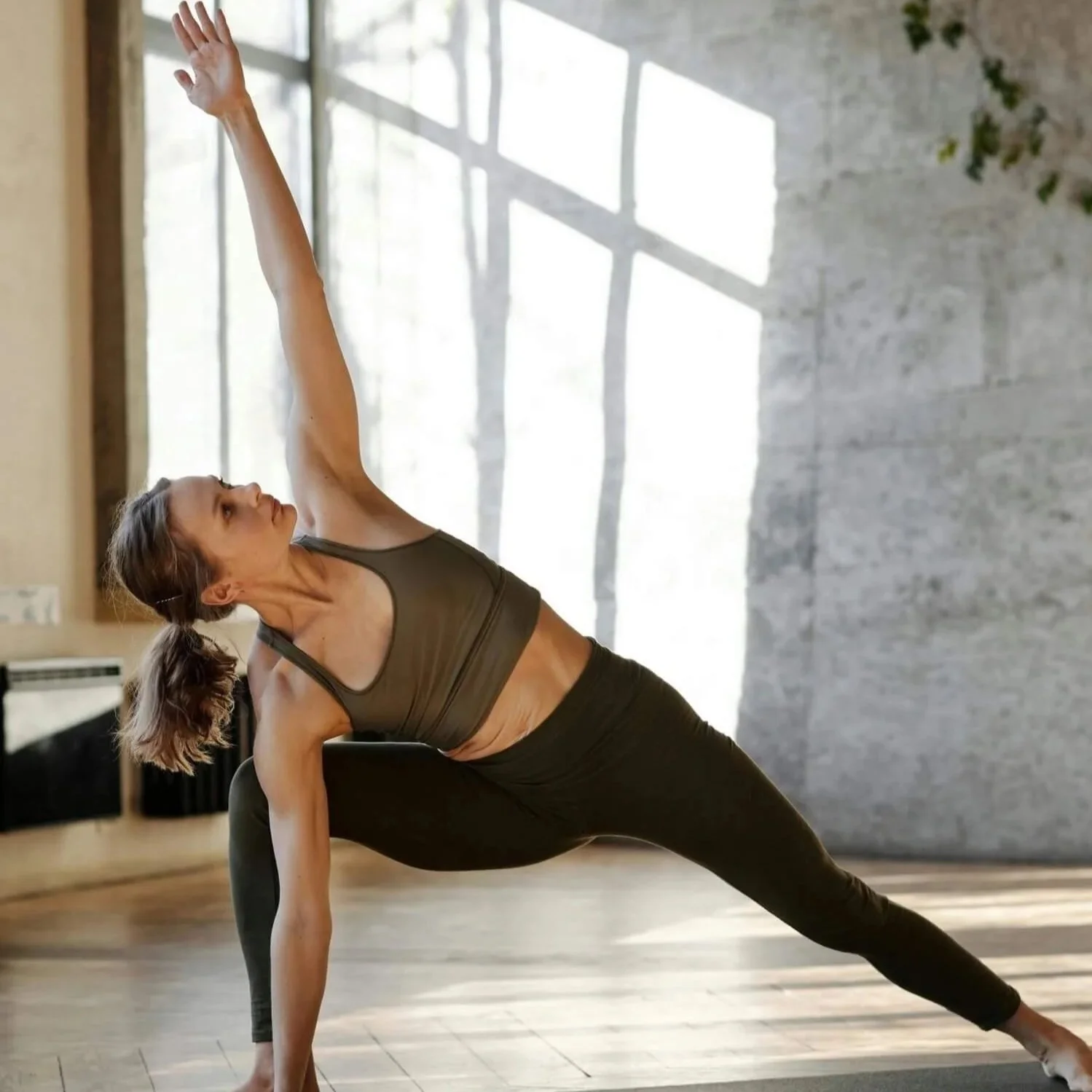What is Your Orientation Toward Exercise?
In the health and wellness space, we all know that exercise is key for physical health.
A regular movement practice, such as going to the gym, taking daily walks, practicing yoga, or simply leading a life that is more active than sedentary will serve you well on your path to physical well-being.
Yet there is perhaps a misconception that being physically active, that prioritizing your physical health through exercise, is synonymous with having a healthy and body-honoring approach to movement.
“Just because you have an active lifestyle or move regularly doesn’t mean you are truly in touch with your body.”
In the West, the intellect of the mind is prized above the wisdom of the body. Many of us were taught to let our minds lead with everything we do in life, including how we exercise.
But being conscious of your body from a mental standpoint isn't the same as being attuned to your body's experience in the moment. Having ideas and beliefs about what is healthy isn't the same as possessing the ability to discern how your body actually desires to move.
With cultural messages delineating what healthy looks like, the glorification of 5 a.m. workouts, and the prevalence of health-related tech that teaches us to relentlessly track and optimize our movements, it’s less common to hear women talking about moving simply to feel good in their bodies.
This mental orientation toward exercise has resulted in a spectrum of unhealthy behaviors, from occasionally overriding our body’s messages or mindlessly checking workouts off our to-do lists to being fully out of touch with our body’s wisdom and risking serious injury or poor health outcomes in the long term.
Below are some common patterns and signs that might show up when your approach to exercise is out of alignment with your body’s actual needs, even when you think you’re being healthy.
How many of the following behaviors have you engaged in?
being consistent with your exercise routine no matter how you feel that day
refusing to skip a workout even when you didn’t get enough sleep the night before
pushing yourself to finish a workout despite feeling depleted halfway through
approaching exercise through the lens of burning calories or losing weight
overexercising to the point losing your period
trying to get your pre-baby body back as soon as possible
On the surface we might look at a woman engaging in these behaviors as healthy, as someone who takes care of her body, who prioritizes her physical well-being even when it’s hard. We might especially applaud someone who engages in these behaviors if she appears fit and matches the cultural aesthetic of a healthy woman.
Yet at their core, these behaviors are examples of pushing past your capacity, of being unable to decipher your body’s messages, of approaching fitness as an obligation or punishment. These behaviors are examples of not knowing when or how to slow down, of being unwilling to listen and adapt to your body’s needs in real time.
“Approaching exercising solely through a mental lens neglects the body’s innate knowing of how to move in a way that naturally contributes to our well-being.”
My own experience with listening to my body about exercise has evolved from a more outward-oriented process involving some of the behaviors listed above to one of deeper inner listening over the years.
In my mid-twenties, I was very physically active, doing multiple high-intensity interval training workouts and strength training sessions, in addition to swimming laps, each week. I was active nearly every day without integrating adequate time for rest and recovery.
I was overexercising without realizing it, following external fitness guidelines in an attempt to be healthy. This pace continued until I badly injured my ankle and was forced to give up more rigorous forms of exercise for close to a year.
By my early thirties, I had developed more body awareness after having a consistent hatha yoga practice for three years. At the time I thought this style of yoga was the perfect balance of gentleness and strength for my body, yet one morning I woke up and realized my body did not wish to practice yoga any longer.
“My mind was quite confused, as I still loved the idea of continuing a movement practice I enjoyed, but the signals from my body were clear.”
I decided to take a break and listen for any signs that it was time to get back into yoga. The desire to practice didn’t fully return for another four years.
I struggled to mentally accept that I wasn’t as active as I had once been yet chose to honor my body’s wisdom regardless. Now in my mid-thirties, my body is asking to balance rest with activity, to take regular walks and add in yoga on days I have the energy.
My orientation toward exercise has shifted dramatically over the last decade. It’s rare that I push myself when I recognize my body saying no, a clear departure from when I used to let my beliefs dictate my decision. This body-honoring approach and the willingness to not always follow mainstream exercise advice, however, took time to truly embrace.
“We have a lot of ideas about how we should move but we’re not often taught to consult our bodies, even though our bodies are the natural experts.”
Our bodies know how they want to move. All we have to do is listen.
If we follow this wisdom, that means each of us must choose the types and intensity of exercise that work best for us, regardless of what anyone else is doing.
My body is not the same as yours. My exercise routine shouldn't be the same as yours either.
How you relate to exercise, how you approach your movement practice, reveals a lot about your overall relationship with your body.
Consider the following questions to more deeply grasp how you relate to exercise:
Do you have preconceived ideas about what it means to be fit?
Are you setting goals in your mind rather than asking your body what she wants?
Are you trying to achieve a certain weight?
Trying to sculpt a certain physique?
Punishing or judging yourself?
Are you exercising too often?
Pushing past your body's signals?
Are you using exercise as a distraction or way to numb your feelings?
Are you motivated to exercise out of shame?
Trying to avoid other people's comments and criticism?
Are you choosing forms of exercise that are inappropriate for your body type or phase of life?
Are you focused on efficiency, performance, and optics?
Are you staying still when your body wants to be in motion?
Or….
Are you celebrating your body's capacity to move and moving the way she desires?
Choosing to move with joy or simply for the sake of pleasure?
Welcoming embodied movement and feeling good in your body?
Moving at the pace that feels best to you?
Honoring your natural rhythm and your body’s current abilities and limitations?
Are you inhabiting your body while you exercise?
Fully present to her sensations, impulses, and responses?
Are you building flexibility and strength to avoid injury?
Are you aware of what menstrual cycle phase or life stage you're in and modifying accordingly?
Are you adjusting your routine when you're tired, emotional, stressed, drained, or sleep deprived?
Are you able to honor when your body says no and prefers to rest?
After reading these questions, how would you characterize your orientation toward exercise?



